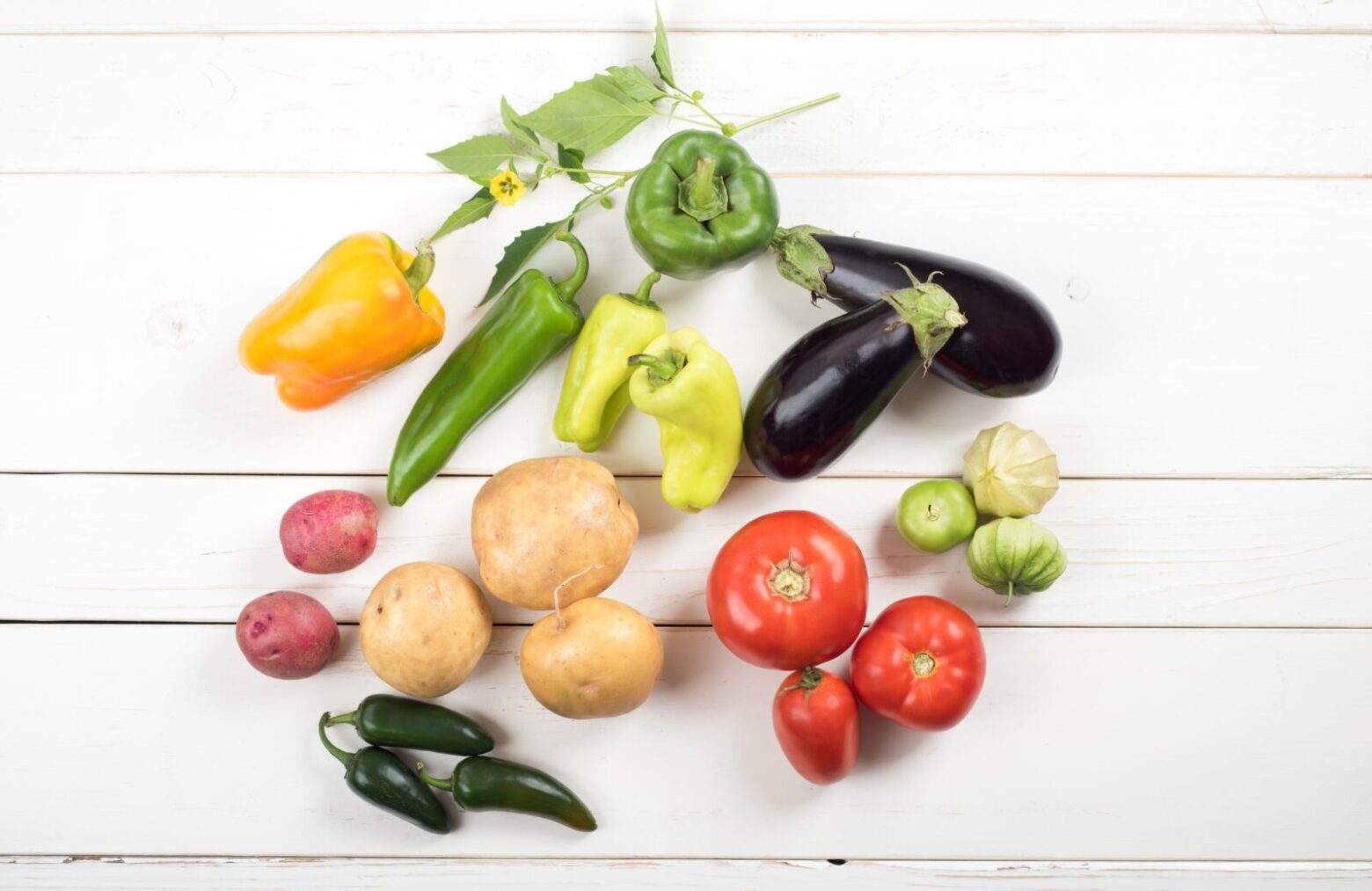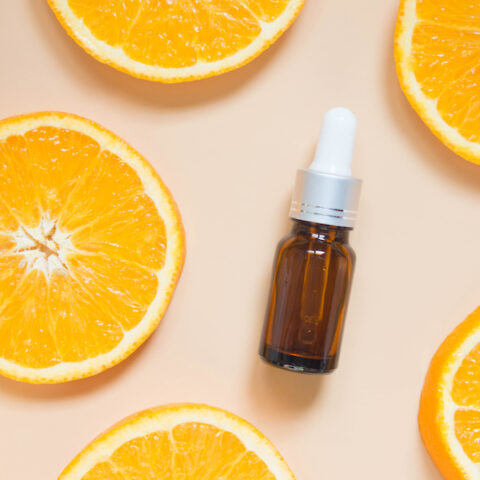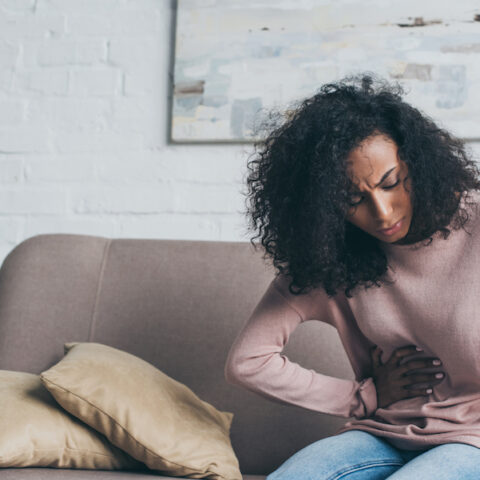How to Tell If You Have a Nightshade Sensitivity

Nightshade vegetables contain specific compounds that can affect gut health. Know the symptoms of nightshade sensitivity and see how to prep these foods to avoid a reaction.
Tomatoes, peppers, chili flakes, eggplant, potatoes. What do these seemingly random veggies have in common? They’re all nightshade vegetables.
What does this mean?
It means that these veggies contain specific compounds that can cause irritation in your gut, as well as cause or exacerbate autoimmune issues, if you have them.
Let’s break down whether you should eat nightshade vegetables, when to pause on them, and how to prepare them when you do eat them. This will help you avoid any excess irritation or common issues that are sometimes caused (often unknowingly) by nightshade consumption.
What Are Nightshades?
Nightshades are a class of vegetables belonging to the Solanaceae family. These include the edible forms: white potatoes, peppers (including chilies and bell), tomatoes, eggplant, and spices made from these plants, like paprika and chili flakes. There are also highly toxic forms, which include plants like belladonna, or “deadly nightshade,” which has traditionally been used as a poison.
Obviously, when many people learn that the extremely toxic varieties of nightshades are in the same family as the innocent-tasting tomato, alarm bells tend to go off. This is exactly why many people avoid nightshades altogether.
However, just because these plants are in the same family as belladonna doesn’t mean they are poisonous. On the contrary, many are rich in beneficial nutrients.
The reason you may want to occasionally limit nightshade vegetables, however, is due to their alkaloid and lectin content. Alkaloids and lectins are groups of chemical compounds that act as nightshades’ natural “pesticides” to give them protection from pests.
Most of this alkaloid and lectin content is concentrated in the stems and leaves of these plants, so the small amount in the fruits tends to not bother many people. However, those with extremely sensitive guts or autoimmune disorders like arthritis and IBS tend to react to them with an immune response (something you’re likely already dealing with when you have an autoimmune issue).
Because of the irritating nature of alkaloids—they’re meant to kill pests, after all—they can also cause inflammation and irritation in your gut lining, which can lead to all types of other issues, including leaky gut.
One study on mice with inflammatory bowel disease that were fed the skins of potatoes—where lectin, another irritating compound found in nightshades, is concentrated—revealed that their gut inflammation significantly increased after consuming them. [1]
Signs of Nightshade Sensitivity
The following symptoms are indicative of nightshade sensitivity:
- Irritable bowels
- Diarrhea
- Heartburn
- Joint pain
- Arthritis/swelling in the joints
- Acid reflux and/or heartburn
- Itching
- Leaky gut
- Autoimmunity or chronic conditions
As you can see, some of these symptoms will be noticeable immediately after eating nightshades, while some may not be as noticeable right away (such as with IBS or arthritis).
Sometimes people consume multiple varieties of nightshades—for example, chili flakes on dinner one night, tomato sauce with something else another night—so it can be hard to discover which nightshade (or if any at all) is causing an issue unless you eliminate them.
Should You Avoid Nightshades?
After reading this, it’s easy to want to jump on the anti-nightshade bandwagon, but unless you’re dealing with severe gastrointestinal issues or suspect an autoimmune disorder, there is no reason you can’t consume nightshades every so often. Some of the compounds that cause irritation, like capsaicin for instance, also have remarkable benefits in people with healthy guts, such as helping to fight inflammation, rather than causing it. [2]
If you’re concerned nightshades may be causing issues, try eliminating them all for a week or two, then slowly reintroduce one at a time. Note if any side effects flare up, or if any issues you’re currently dealing with (e.g., joint pain or stiffness) improve. If you see no side effects, good or bad, you’ll most likely be okay consuming nightshades.
Since we don’t necessarily want to expose ourselves to high amounts of alkaloids and lectins all the time, it helps to limit them where we can if we are going to eat them. So, when eating nightshade veggies, try the following:
- Avoid green tomatoes and/or green or sprouting potatoes
- Cook all nightshade veggies, like tomatoes and eggplant, before eating them, as this reduces their alkaloid content.
Again, if you have a healthy gut and aren’t dealing with any issues, you’re most likely fine consuming nightshades once or twice a week. However, if you have persistent symptoms like those listed above, and you haven’t discovered the cause yet, try eliminating them and see how you feel.
References
- Vadim Iablokov, et al. “Naturally occurring glycoalkaloids in potatoes aggravate intestinal inflammation in two mouse models of inflammatory bowel disease.” Dig Dis Sci. 2010. Nov; 55(11):3078-85. DOI: 10.1007/s10620-010-1158-9. <https://pubmed.ncbi.nlm.nih.gov/20198430/>
- AT Jolayemi and JAO Ojewole. “Comparative anti-inflammatory properties of Capsaicin and ethyl-aAcetate extract of Capsicum frutescens linn [Solanaceae] in rats.” Afr Health Sci. 2013 Jun; 13(2): 357–361. DOI: 10.4314/ahs.v13i2.23 <https://www.ncbi.nlm.nih.gov/pmc/articles/PMC3824481/>
Megan Patiry
Megan Patiry is a freelance writer specializing in ancestral nutrition. She has personally followed a Paleo-style, ancestral style of eating for over a decade.
More About The Author




